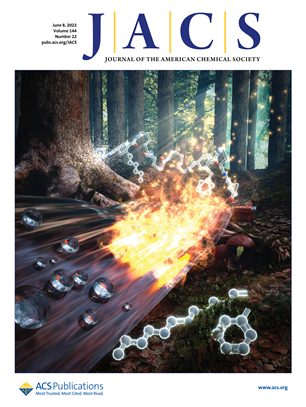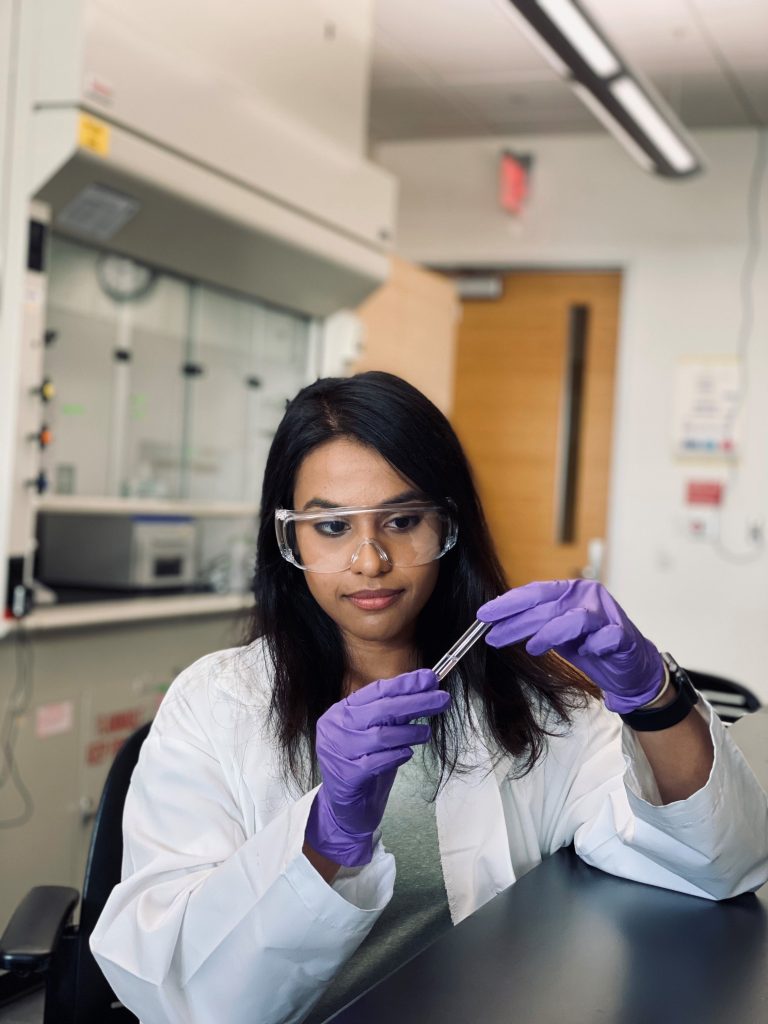CBE research group’s article featured on the cover of the Journal of the American Chemical Society
Author: cbecomm
Author: cbecomm

The work being done by the research groups of Chemical and Biological Engineering professors Eric Cochran, Brent Shanks, and Jean-Philippe Tessonnier is making headlines. The article “ Bioenabled Platform to Access Polyamides with Built-In Target Properties,” which is a result of their research, has been featured on the June cover of the Journal of the American Chemical Society (JACS).
Prerana Carter, a Chemical and Biological Engineering graduate student and the lead author of the article, said, “it was gratifying to see our work featured on the cover of such a prestigious journal.”
Considering the novelty of the research, it is no small wonder why it made the cover of JACS. How so? Well, the article outlines a new platform synthesis technique that will help accelerate the use of sustainable materials to produce plastics with enhanced properties that are not derived from petrochemicals.
The issue with petrochemicals
Traditionally plastics are created using petrochemicals, which are chemicals derived from petroleum and natural gas. Our reliance on petroleum to create plastics is illustrated by the fact that plastics account for 10% of global oil production. Every day 3.5 million barrels of oil are used to produce single-use plastics alone. Using petrochemicals to produce plastics is not sustainable and creates greenhouse gas emissions, waste, and pollution.
Accelerating change with a new technique
Plastics derived from biobased materials and molecules provide an alternative to our reliance on petrochemicals. However, the adoption of biobased molecules for plastic and polymer production by the chemical industry remains slow.
The collaborative research conducted by Cochran, Shanks and Tessonnier’s research groups may help accelerate the chemical industry’s adoption of biobased molecules to make plastics and other polymers.

As Carter explains, she and her colleagues’ article outlines a new synthesis method that “takes biobased molecules and transforms them into performance-enhanced plastics that cannot be readily derived from traditional petrochemicals.”
The technique the researchers developed has the potential to accelerate the adoption of more sustainable methods of plastic production.
The article showcased how a conventional plastic could be tailored to exhibit superior water resistance and flame retardance without sacrificing key polymer properties.
This tailoring of the plastic demonstrates that businesses could create new fire and water-resistant clothing, textiles, wiring, carpets, and more.
As Carter notes, though, “The plastics we produced are not the novelty. The real novelty is our platform synthesis that takes advantage of biobased molecules because it can be generalized to insert a range of properties into various polymers.”
This strategy can be adapted to produce plastics with improved strength, flexibility, shock resistance, corrosion resistance, and more. This opens up opportunities for businesses to produce new and superior products.
Increased demand for such products cold help the chemical industry embraces the use of sustainable materials to create new and useful plastics that cannot be easily derived from petrochemicals. Such a shift can move us away from our reliance on petroleum to produce plastics.
